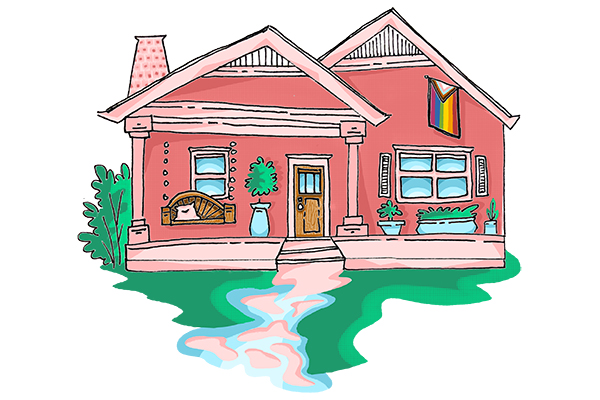Quarantined in her Austin apartment in August, Fay Medina pressed her phone to her ear and came out to her mother as bisexual. There was a pause.
“You know you're going to hell, right?” her mother said.
Medina’s heart sank. Shaking, she asked her mother if she still loved her. Her mother ignored the question.
Because of the COVID-19 pandemic, families spent months together inside their homes, while others struggled to remain connected while apart. Some LGBTQ+ students knowingly faced hard conversations to come out to their families as a way to connect with them.
Medina, an international relations and economics senior, said her younger brother is immuno-compromised, and she hasn’t seen him or her mother in almost a year. In her apartment, she spent hours watching videos and reading stories about people coming out to their families.
“Especially during COVID, I wanted to be closer with my family,” Medina said. “I wanted to have more people to talk to daily about things and not have any restrictions.”
After coming out to her mother over the phone, Medina said they didn’t speak for weeks. She said the silence hurt her and she blamed herself.
“I want to talk to my mom (because) she’s my mom, you know?” Medina said. “(But) then she wouldn’t say ‘I love you’ and that hurt me for so long.”
Four months later, Medina and her mother have not spoken about that phone call. She said she is willing to not talk about her sexuality if it means she can be a part of her mother’s life and she can watch her little brother grow up.
COVID-19 sent biology sophomore Trinity Rust back to her League City childhood home in March. For the first few months, Rust said she felt uncomfortable hiding her sexuality from her family and wanted to go back to Austin.
“I had been avoiding coming out to my mom for a while, just because she's a deeply religious person,” Rust said.
During an argument one day, Rust said she blurted out to her mother that she was gay. She said she hadn’t planned for that moment, but both of her parents were ultimately supportive.
“I'm really glad I came out to both my parents, because it is easier to be home,” Rust said. “I'm able to talk to my mom about girl problems instead of just being like, ‘Oh, I'm not dating anyone, … just focusing on school.’”
When the time came to return to Austin in the fall, she said it was hard to leave.
“Coming out to my mom, while one of the hardest things I've done, was one of the best things I've ever done,” Rust said.
Alone with his father on the drive home to Kennedale from Austin for Thanksgiving break, government sophomore Leland Murphy came out as queer. With no escape from the car ride, Murphy said it was really nice to finally have a conversation about his sexuality.
“There have been a lot of bad, really dark, low points throughout quarantine, but I feel like now it is better especially after (coming out),” Murphy said.
After telling his family, Murphy said he doesn’t have to be as secretive about his life. Now he talks openly about his boyfriend with his family, which he said “seems so small” but means a lot to him.
“Everyone should be able to love openly and show love openly and have a relationship openly,” Murphy said. “It's a big burden lifted off, and I feel a lot happier now that I have come out.”




















